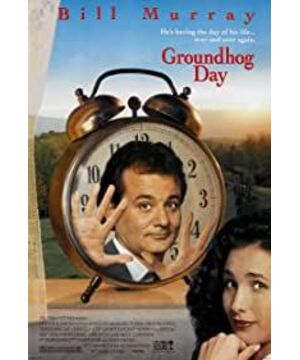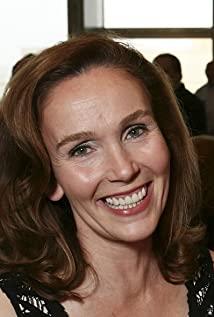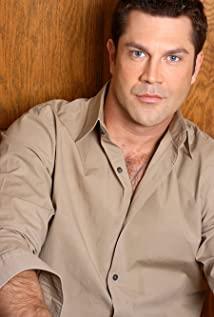1993 and 1994 were the golden years of world cinema, and a large number of masterpieces such as "The Shawshank Redemption", "Forrest Gump", "Sunny Days", etc. The theme was selected from a 1993 American comedy film - "Groundhog Day" (Groundhog Day), starring Oscar-winning actor Bill Murray, who was one of Hollywood's hottest actors in the 1980s and 1990s. comedian. Why choose such a film to combine aesthetic theory analysis, because the film is a solid comedy art, incorporates a lot of comedy art techniques, and can make the viewer reflect on himself in simple language.
Contradictions in life are the source of comedy. If one day, your day falls into infinite reincarnation, repeating again and again, will you go crazy the next second you wake up? Repeat the real scene every day, and you can't change anything. Reality in life is the norm, sometimes making many people so desperate that they look forward to the next life; while repetition in life is illusory and abnormal, everything done in this repetition space happens with the original real life The irreversible conflict, which recurs throughout the film. It's this hilarious and inexplicable conflict—a day that can't move forward and Phil's desire to get out of the prison that defines this film: comedy. Isn't the bizarre setting the perfect place for comedy.
The comedy features of combining Zhuang and Harmony, the dialectical unity of "Zhuang" and "Harmony" runs through the whole film. The whole movie is actually full of chicken soup, a huge bowl of chicken soup. But the genius also lies in his entertaining, you won't think he's preaching in a jerky way. , which is an important feature that distinguishes great films from ordinary films. Combining Zhuang with Harmony, Zhuang is hidden, and Harmony is revealed. Comedies or dramas such as "The Truman World" and "Forrest Gump" also have this feature. As the saying goes, if you lose a profound ideological theme, comedy also loses its soul. The ideology of "Groundhog Day" is profound, whether it is a big theme or a certain sub-shot (——Phil is teaching others for a crash piano lesson. The female teacher of the piano class paid 1,000 US dollars, and the female teacher immediately kicked out the little girl who was in class. The aggrieved and contemptuous look on the little girl's face made people laugh out loud - this undoubtedly satirizes the despicable money worship.) Profound The main idea of his thoughts is gradually revealed in the second half: how to make the repeated life meaningful and enjoy every day, no matter if tomorrow will come or not.
Phil's February 2 is paradoxical, and showing truth in perversion is a hallmark of comedy. The whole film is nothing more than revolving around a "wrong" word - the first three days of repetition, Phil was in a state of doubt, then Phil panicked about this "wrong", and slowly, Phil I know how to "play my fists" and do whatever they want in the whole "wrong" environment; until he is emotionally frustrated and fails to pursue a woman, he begins to give up on himself in the "wrong"; finally, he is relieved in the "wrong", and the film ends at the end , The last time Phil woke up, he went from "wrong" to "right" - back to real life - that was February 3rd, the day after February 2nd. In the repeated "mistakes", the audience's surprise and laughter glands are activated again and again to achieve the best purpose.
In addition to the essential exaggeration, coincidence, repetition is also the expression of comic art. The biggest artistic feature of this film is repetition, the continuous reproduction and switching of repeated scenes, which also appeared in the movies "Inception", "Source Code", etc., but those are not repetitions in comic art (but to achieve a a sci-fi fantasy effect). The idea of the writers of Groundhog Day is undoubtedly a success. The repeated day made Phil a "one-day prisoner", and the time was still stuck on the previous day. No matter how he chose to spend the day, he couldn't go any further.
Exaggeration in the art of comedy is not nonsense and cannot violate the reality of life. The film does not have excessive nonsense, and the character and environment settings are all in consideration. For example, Phil, a weather forecaster, was called Psutani's "groundhog". Later, I checked the Internet and found that the small animal, the groundhog, is known as the god of weather in the United States—— It is an animal that can accurately predict the weather through its actions. What happened next followed the laws of nature and the choices of Phil's actions. In fact, the repeated setting is also a kind of reality of life. This reality is reflected in what will happen at a certain moment of the day, and there will be no deviation due to the repetition of time.
Pushkin once said, "Noble comedy is often close to tragedy." Comedy master Chaplin also said frankly, "I started from the great human tragedy and created my own comedy system." The ridiculousness at the beginning does not mean that the whole The tone of the film is beaming, on the contrary, it is full of endless irony, so that sometimes when Phil does something ridiculous, you will only laugh, and the next second you will subconsciously make this ridiculous. The deeds are superimposed on myself—if it were me, would I be like Phil, or even worse than him. The "sadness" of the film is also pushed to the climax with the change of the protagonist Phil's desperate mentality again and again (the atmosphere of this film's climax is sadness rather than joy) - countless suicides have failed, car explosions, jumping off buildings, falling River, failed to bring him back to reality, Phil was desperate, and I was desperate off-screen; when Phil was relieved, he found that he couldn't do everything, such as resuscitating a lonely old man who died tonight , he couldn't do it, Phil shed tears and my eyes were wet.
In bed, Phil looked affectionately at his lover who was sleeping in front of him, "The worst thing is tomorrow, you will forget everything, and you can't even be by my side when you wake up." This scene is very sad, so in the finale of the film , is also Phil lying with the heroine, but when she wakes up in the morning, she is still by her side - a sign that the repetitive life is over, and the days return to normal to end the film.
The art of comedy is to expose the essence through illusion. Lu Xun's famous sentence "Comedy is to tear up the worthless for people to see." Is Phil's daily life real? Is it fake? It is difficult for you to judge whether they are true or false. The repetition of February 2 is real and sensible to him because he has memories. But apart from him, everyone and everything is fake in this space - fleeting, day after day, memories fading, scenes reappearing. In this virtual illusion, everything is set, and Phil is the most real one. His words and deeds are hindered by this fake environment, and his choices are ridiculed by countless audiences. , praised, and profoundly revealed the central idea of the film.
Harlequins in life often appear as villains, and clowns in comic art can be both villains and positives. Audiences who watch the full movie will definitely not classify Phil as a negative character, and even many people regard Phil as a completely positive character at the end, but it is undeniable that in the middle or third of the movie In the second timeline, Phil looks like a jerk - deliberately racing a police car, having a one-night stand with a woman he doesn't know, driving a car on a train track, and grabbing the first big bag on a cash truck by repeating the pattern Money... In the second half of the film, Phil came out of a frustrated love experience and realized the true meaning of repeating his life. He began to learn the piano and French poetry, and through the pattern of repetition, he helped the townspeople in the next minute of difficulties and difficulties. Unexpectedly, he also won the heart of the heroine in the end, and gained the support and love of the people in the town. This is not a role-switching process.
Finally, I would like to conclude that the performance of comedy actors is not an ordinary performance. Throughout the history of famous comedians, there are Chaplin, Jim Carrey, Atkinson (Bean), Xu Guanwen, Zhou Xingchi, Zhu Shimao, etc., they Both have comedic looks and talent for acting. Without exception, in their comedy films, they are astonishingly integrated with comedy situations, which is beyond the reach of other types of actors. It is often comedy, which expresses some satirical issues with a high theme and a deep thought. In Japan and Korea, comedy performance is a unique profession with its own program format and tradition, and they are also called Gagman locally. Bill Murray looks so good when he can be wild
How you live a day is how you live your life. Life is mostly a cycle of single songs, and it is not a waste to have love. The great comedian Bill Murray, in his true colors, interprets a great comedy that is timeless.
View more about Groundhog Day reviews











